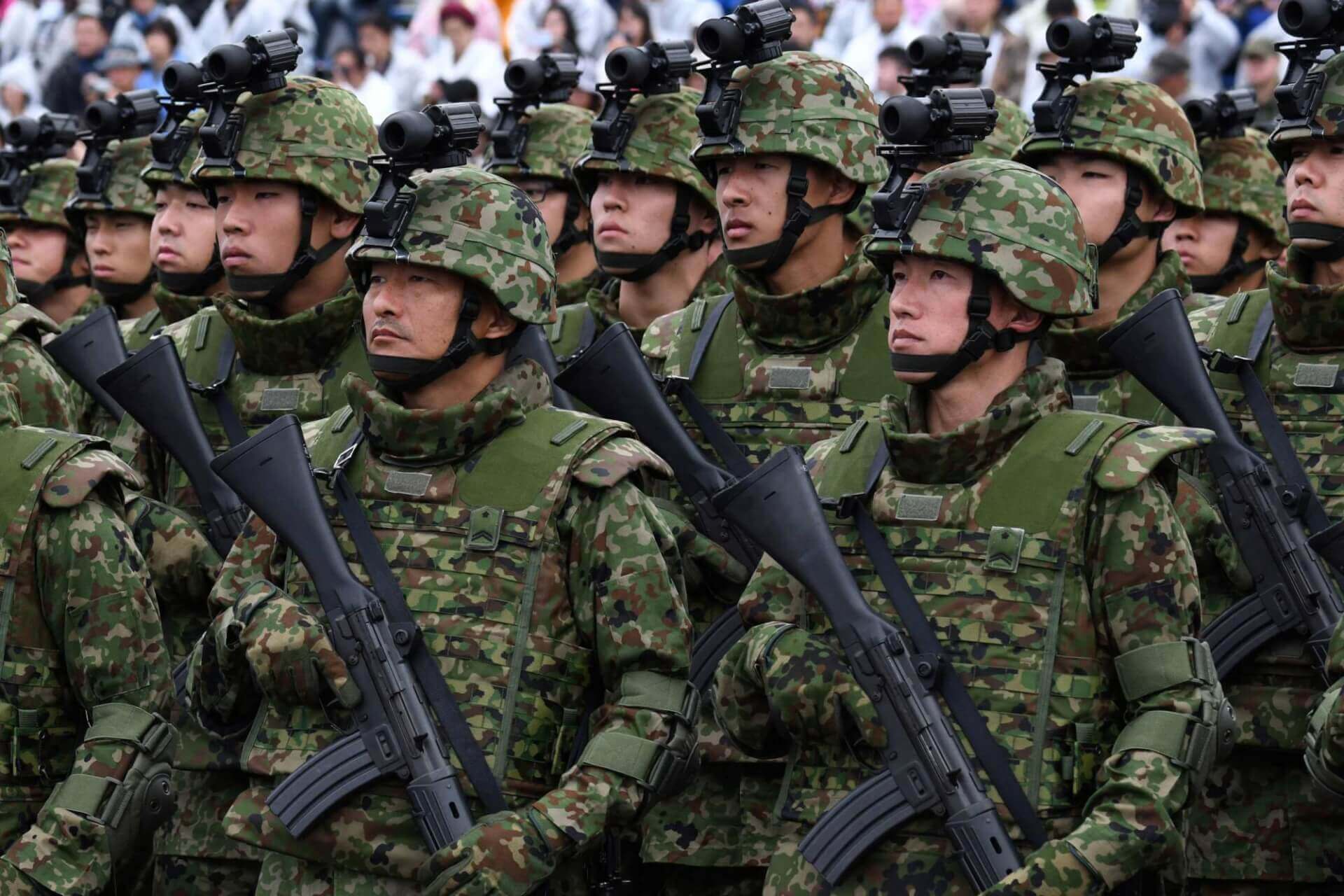In its new national security strategy released on Friday, Japan announced its biggest military buildup in decades, including doubling its defence expenditure, firmly signalling that it is moving away from its pacifist constitution.
In a televised address, Prime Minister (PM) Fumio Kishida said that his government had approved three security documents—the National Security Strategy (NSS), the National Defense Strategy, and the Defense Force Development Plan—to bolster Japan’s defence capabilities amid an increasingly unstable security environment.
Its national security strategy document asserted that Japan must adapt to “historical changes in power balances, particularly in the Indo-Pacific region,” where it said the security environment is “as severe and complex as it has ever been since the end of World War II.”
The international community of which Japan is a member, is facing serious challenges and has plunged into a new crisis. Given the foregoing, in future one cannot rule out the possibility of serious events, that might shake the foundation of stable post-war international order.
— Japan Ministry of Defense/Self-Defense Forces (@ModJapan_en) December 16, 2022
It noted that there has been a ‘rapid’ military buildup across the region, including of nuclear weapons and missiles, wherein certain actors are “unilaterally changing the status quo by force.”
In particular, it pointed to the Chinese People's Liberation Army pledging to promptly elevate itself to “world-class standards,” as a result of which Beijing has been “increasing its defence expenditures at a continuously high level and extensively and rapidly enhancing its military power, including its nuclear and missile capabilities, without sufficient transparency.”
The defence ministry accused China of intensifying its “attempts to unilaterally change the status quo by force in the maritime and air domains including in the East and South China Seas.”
Maintaining Japan’s own sovereignty and independence can be achieved through its own independent and voluntary efforts.
— Japan Ministry of Defense/Self-Defense Forces (@ModJapan_en) December 16, 2022
Pointing to China’s maritime and airspace “intrusions” around the Senkaku Islands, the paper said Beijing has “expanded and intensified its military activities that affect Japan’s national security in the Sea of Japan, the Pacific Ocean, and other areas.”
It also highlighted North Korea’s intentions “to bolster its nuclear capabilities both in quality and in quantity at the maximum speed.”
“When considered together with its rapid development of missile-related technologies, North Korea's military activities pose an even more grave and imminent threat to Japan's national security than ever before,” the document said.
No country can now protect its own security alone. It is critical for Japan to deepen cooperation and collaboration with its ally and like-minded countries.
— Japan Ministry of Defense/Self-Defense Forces (@ModJapan_en) December 16, 2022
Furthermore, it expressed concern about Russia’s continued threats to use nuclear weapons.
“Russia is accelerating its military activities in the vicinity of Japan. Russia is also strengthening its armaments in the Northern Territories, which is an inherent territory of Japan,” it said.
In this regard, the paper mentioned China’s growing ‘strategic coordination’ with Russia as another key security concern for Japan, saying the two countries’ increasingly frequent joint exercises and drills, including joint flights of bombers “in the vicinity of Japan,” have “challenged the international order.”
Keeping this in mind, it said Japan “must protect its own national interests” by “steadfastly preparing for the worst-case scenario, including fundamental reinforcement of its defence capabilities.”
Apart from engaging in “vigorous diplomacy,” Tokyo announced that it will strive to enhance its defence capabilities to a point where it can “firmly defend itself on its own.”
Japan’s new defense policy documents disregard facts, deviate from its commitments on relations with China and the common understandings between the two countries, and smear China’s defense and normal military activities. China firmly rejects this. pic.twitter.com/tI1ijfrZDG
— Spokesperson发言人办公室 (@MFA_China) December 19, 2022
In this regard, the defence ministry announced that over the next five years, Japan’s defence budget will constitute 2% of the GDP. It wil also bolster its responses in coordination with “like-minded countries.” The new budget amounts to around 43 trillion yen ($320 billion), 1.6 times that of the current five-year total.
Kishida has not ruled out the possibility of a military option in the future, including counter-strike capabilities aimed at deterring an attack on its soil. However, he has previously reasserted Tokyo’s long-held anti-nuclear weapons position and said that Tokyo will do its “utmost towards achieving a world without nuclear weapons.”
Japan’s recognition of China, Russia, and North Korea as national security threats is not unprecedented. In a defence white paper in July, the country had stressed that “unilateral changes to the status quo by force should never be tolerated.”
In August, it said that it was considering deploying more than 1,000 long-range cruise missiles as a means to narrow the “cavernous missile gap” with China.
Japan is looking to expand the range of its Type 12 surface-to-ship guided missile from just over 100 kilometres to about 1,000 kilometres. This would allow the missile to reach North Korea and coastal China.
It is simultaneously seeking to modify the missiles so they can be fired from ships and fighter jets, with the goal of deploying this “modified ground-launched version” by the fiscal year 2024, two years ahead of schedule.
Chinese Foreign Ministry spokesperson Wang Wenbin responded to the latest documents by accusing Japan of “ignoring facts, deviating from its commitment to China-Japan relations and the common understandings between the two countries, and groundlessly discrediting China.”
“Hyping up the so-called China threat to find an excuse for its military build-up is doomed to fail,” he cautioned on Friday.

